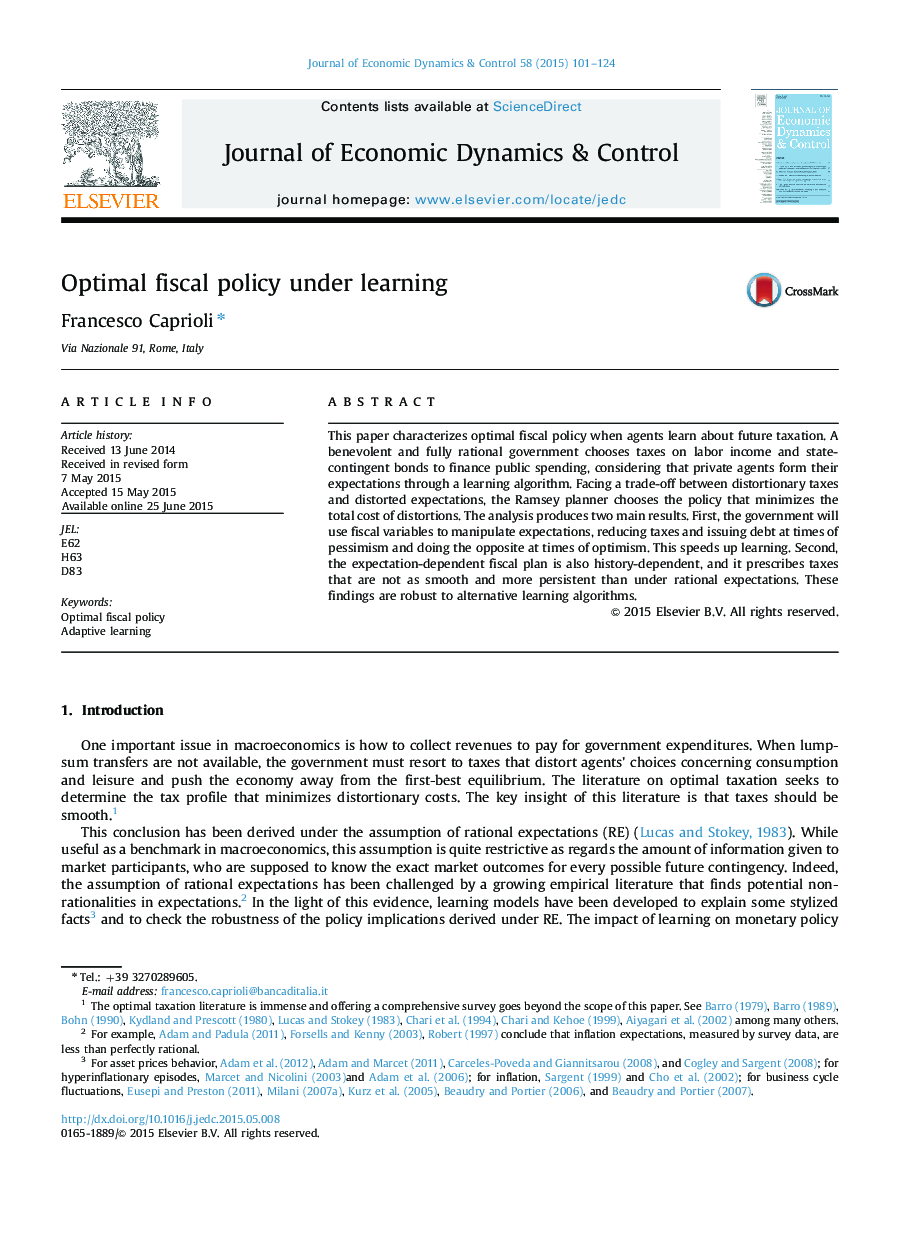| Article ID | Journal | Published Year | Pages | File Type |
|---|---|---|---|---|
| 5098280 | Journal of Economic Dynamics and Control | 2015 | 24 Pages |
Abstract
This paper characterizes optimal fiscal policy when agents learn about future taxation. A benevolent and fully rational government chooses taxes on labor income and state-contingent bonds to finance public spending, considering that private agents form their expectations through a learning algorithm. Facing a trade-off between distortionary taxes and distorted expectations, the Ramsey planner chooses the policy that minimizes the total cost of distortions. The analysis produces two main results. First, the government will use fiscal variables to manipulate expectations, reducing taxes and issuing debt at times of pessimism and doing the opposite at times of optimism. This speeds up learning. Second, the expectation-dependent fiscal plan is also history-dependent, and it prescribes taxes that are not as smooth and more persistent than under rational expectations. These findings are robust to alternative learning algorithms.
Related Topics
Physical Sciences and Engineering
Mathematics
Control and Optimization
Authors
Francesco Caprioli,
